How the Holmgren parents and kids developed their cycling power-household
The high-performance team that brought Gunnar to MTB World Cups, Ava to a CX worlds silver and Isabella to the rainbow jersey for cyclocross
 Photo by:
Courtesy Rob Holmgren
Photo by:
Courtesy Rob Holmgren
This story originally appeared in the June/July 2021 issue of Canadian Cycling Magazine
by Jake Williams
In late July 2000, elite Canadian mountain bike racer Lisa Holmgren and national coach Rob Holmgren had just landed in Puerto Rico to take part in the Pan Am mountain bike championships. The married couple, having left their one-year-old son Gunnar with Lisa’s parents, were stuck at the airport in 40 C heat with nobody to pick them up, and barely any idea of where to go. “It was the trip from hell,” said Rob Holmgren, more than 20 years later as he recalled the international adventure. “I had to put everyone up in a hotel on my student credit card, which was just about maxed.” The Holmgrens shared mattresses on the floor with three riders from Quebec whom they had just met. “That would not happen today, I’ll tell ya,” Rob chuckled.
Lisa had a great result despite racing on a hot and muggy day in early August. The winner was Quebec’s emerging star Marie-Hélène Prémont. Rob recalled that Prémont had brought all of her own food to the event, something he considered a huge lesson. “Prémont was very smart, and had been travelling a lot and was prepared,” Rob said. “Our diet was basically exclusive trips to Burger King.”
Lisa was born and raised in Peterborough, Ont. She moved to Toronto to go to school for physiotherapy. Her boyfriend at the time had just started the University of Toronto mountain bike club. She borrowed a bike that was too big, and headed into the city’s Don Valley. “I thought I broke my arm on my first ride and ended up at Mount Sinai Hospital. It wasn’t broken, but after that I was hooked,” Lisa said.
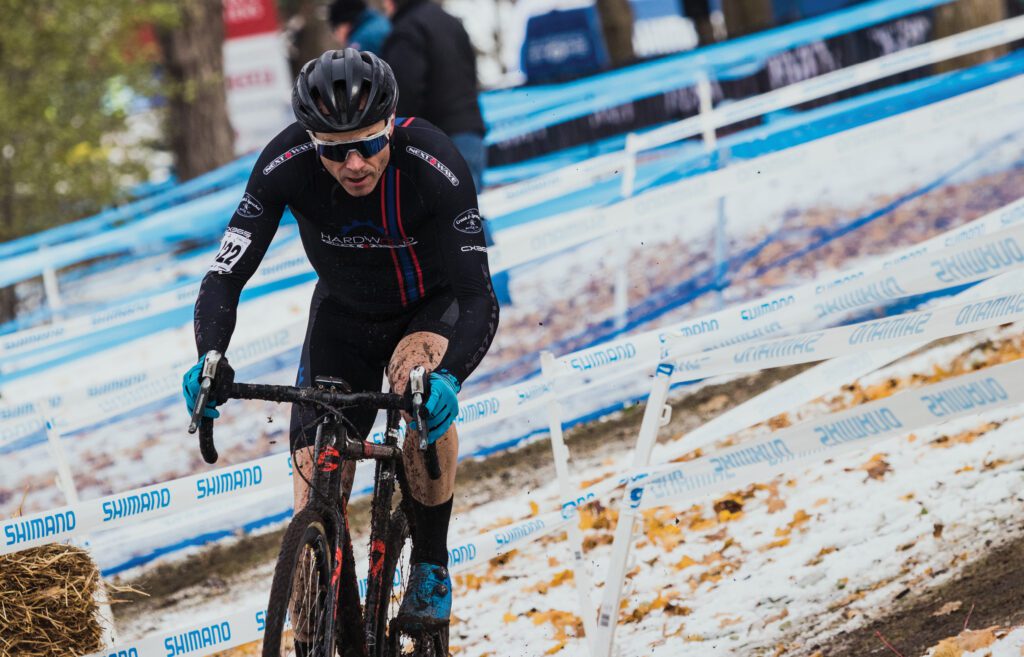
Photo: Matt Stetson
Rob grew up in Hawkesbury, Ont., a small town near the Quebec-Ontario border. His stomping grounds were the trails of the foothills of the Laurentian Mountains.
Rob and Lisa met in the late ’90s at the Hardwood Ski and Bike recreation centre, about an hour north of Toronto, when they were racing on the Ontario provincial team. As Rob moved into coaching duties and Lisa continued to race, Rob approached Lisa. “I used to be charming,” Rob laughed.
Gunnar, their first child, came along in 1999, followed by Torunn, Max, and twins Ava and Isabella. Following in their parents’ pedal strokes, the family remained active and close to Hardwood Hills, so close in fact that for a few years they lived in a house that is practically in the parking lot of the riding area. “We used to hike a lot when Gunnar was a year old, up and down the Coffee Run trail,” Rob said.
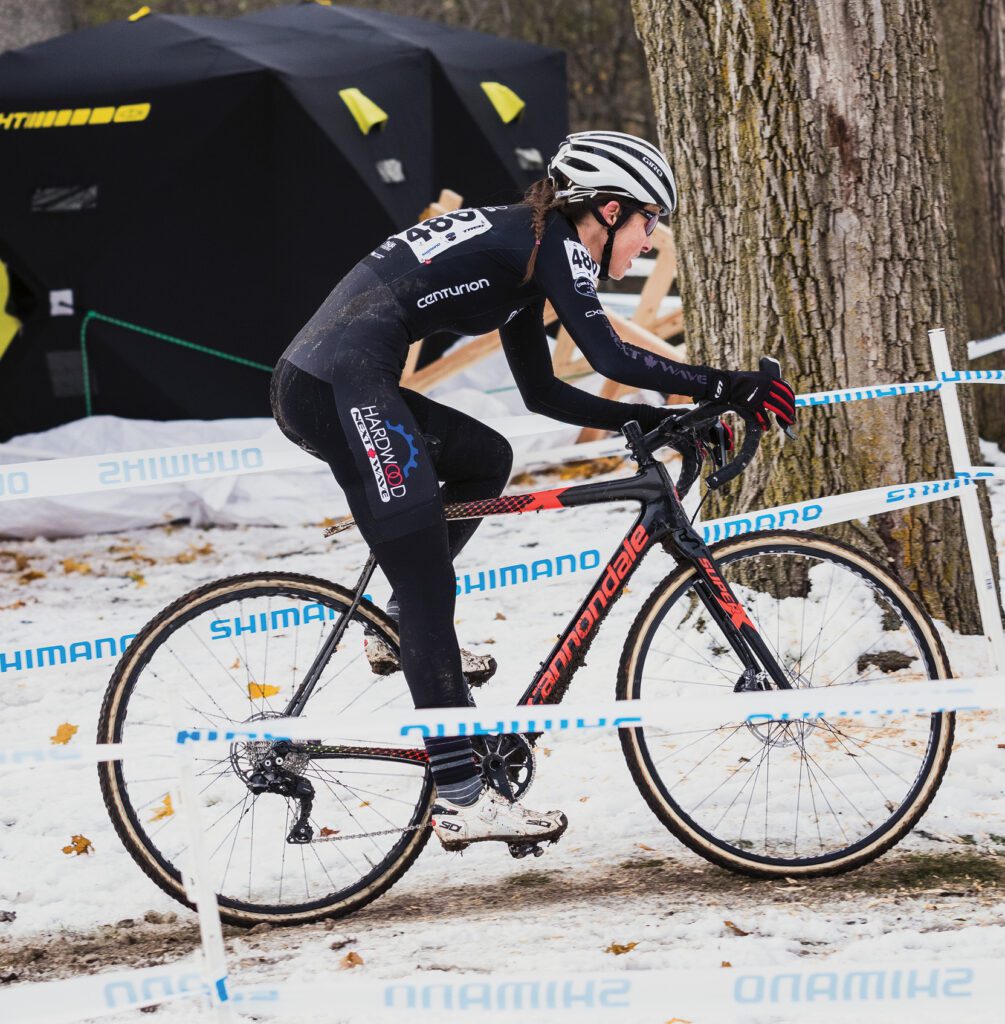
Photo: Matt Stetson
When the family – today based in Orillia, Ont. – wasn’t mountain biking, members were off to swimming or figure skating. Rob and Lisa were careful never to set unreasonable expectations or put unwanted pressure on the kids. “It’s always been a green light for our kids. I’ve never once had to tell Gunnar to get his skates and get in the car,” Rob said.
From a very young age, Gunnar thrived on the ice. Thinking their son may want to play hockey one day, Rob and Lisa made sure that he knew how to skate, really skate, before he got his hands on a stick. It came to the point where one of Gunnar’s coaches asked, “OK, do you want hockey skates or figure skates?” He picked the latter. “I guess I was good at skating, and the figure skating coaches wanted me,” Gunnar explained with a certain casualness. “I think I was four. I don’t really remember.”
By the time Gunnar was 14 years old, he was an accomplished figure skater able to land a double axel and triple toe. When he told his parents he wanted to move on from the sport, it came as a huge shock. “The day he decided he didn’t want to skate anymore, we weren’t even sure what he meant,” Rob recalled. It didn’t help that the family had just purchased him a new pair of skates. Even though Gunnar had made up his mind, his mom made sure he didn’t quit outright and honour the commitment he made to his skating coach for the summer session. Lisa credits Gunnar’s skating coach for helping instill a good work ethic at a very young age.
Less than a week later, Gunnar and the rest of the family were up in Sudbury racing a Canada Cup event. Almost a decade on, Gunnar and his sisters Isabella and Ava, with the full support of their family, have made names for themselves in both cyclocross and mountain bike racing.
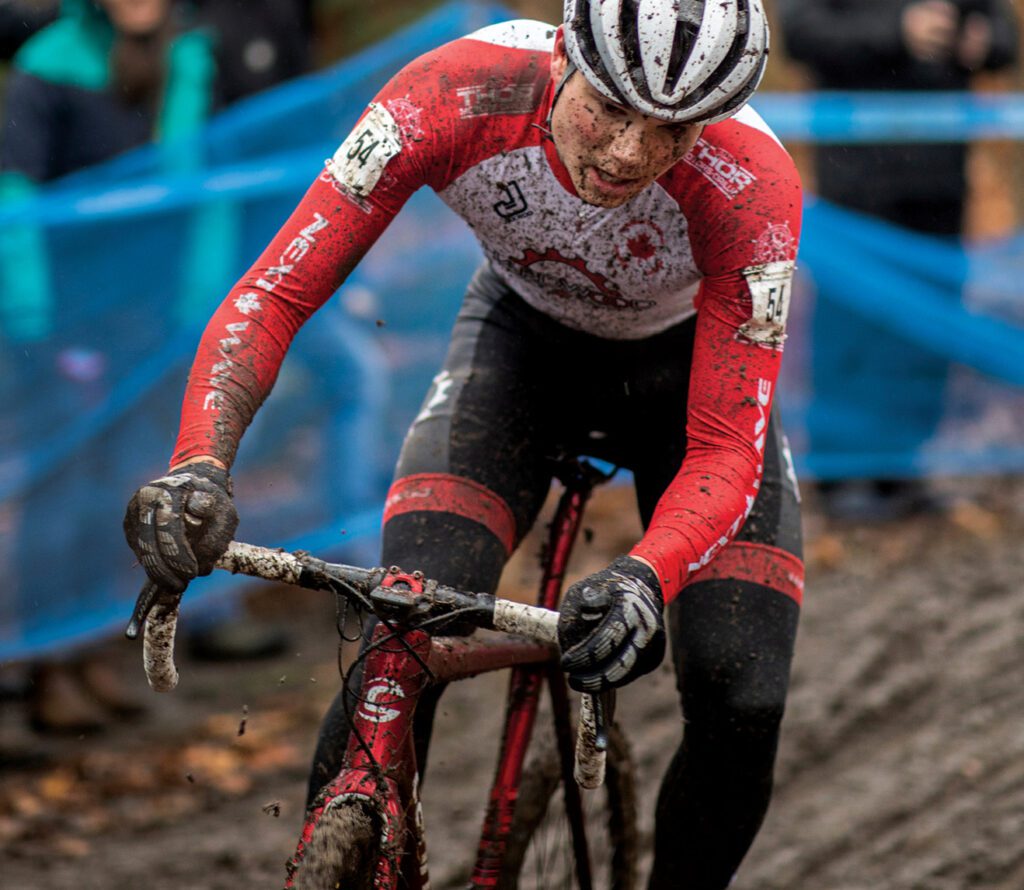
Photo: Nick Iwanyshyn
Gunnar is now going into his final season of racing as an under-23. His abilities have taken him to the highest level of cyclocross in Belgium and to Australia for the mountain bike world championships. Now in his second year with Team Pivot – OTE, he’s looking forward to the support the team can offer, especially in a year with so much ambiguity. “The team does a great job, especially this year when it’s so difficult to sort through the logistics. I’m really lucky to rely on them to take care of that stuff for me,” Gunnar said. The rider can focus on training and, conditions permitting, racing.
In previous years, winter meant racing cyclocross in Europe. This year, at the end of March, Gunnar had just finished a three-month training camp with his Pivot teammates in Victoria, dedicated to his mountain bike skills.“I’ve learned things from ’cross that I wouldn’t have learned from the mountain bike,” he said. “That being said, spending three months on the mountain bike is totally different than hopping on a month before the race. We’ll see how that goes. I think it’ll go well.”

When it comes to athletic preparation, the Holmgrens have come a long way from surviving on Burger King. From an early age, Gunnar realized that becoming a professional cyclist was more than just intervals and strength training. As a teenager, Gunnar was invited to a training camp in the U.S., hosted by the Ontario Cycling Association (OCA). He was the youngest rider in the group. The coaches surprised the kids by having them prepare their own meals. “My mom had prepared me a little bit for that when I was home. She had me cook a few meals for the family before we left. Out of my group, I was the only one who had done that, so from that point on, I was in charge of the dinners,” Gunnar said.
Lisa recalled a time, before Gunnar had his driver’s licence, when he trekked on foot to the grocery store so he could prepare his family a special treat. “He came back with live lobster – brought it home and paired it with crème brûlée,” Lisa laughed. These days, one of his go-to meals is chicken curry. “You just need two pots: one for the veggies, meat and sauce, the other for the rice. You can control the spice level, so everyone’s happy with what they get. That and pasta. Anything with a lot of carbs,” Gunnar said.
He acknowledges eating healthy is hugely important, but being able to adapt to new situations can be key. He remembered one specific hotel meal in the Czech Republic while preparing for the Nové Město World Cup. “Nobody on the team could identify what the food was, some sort of meat, maybe fish. It was a buffet, so you chose something and hoped for the best,” he said.
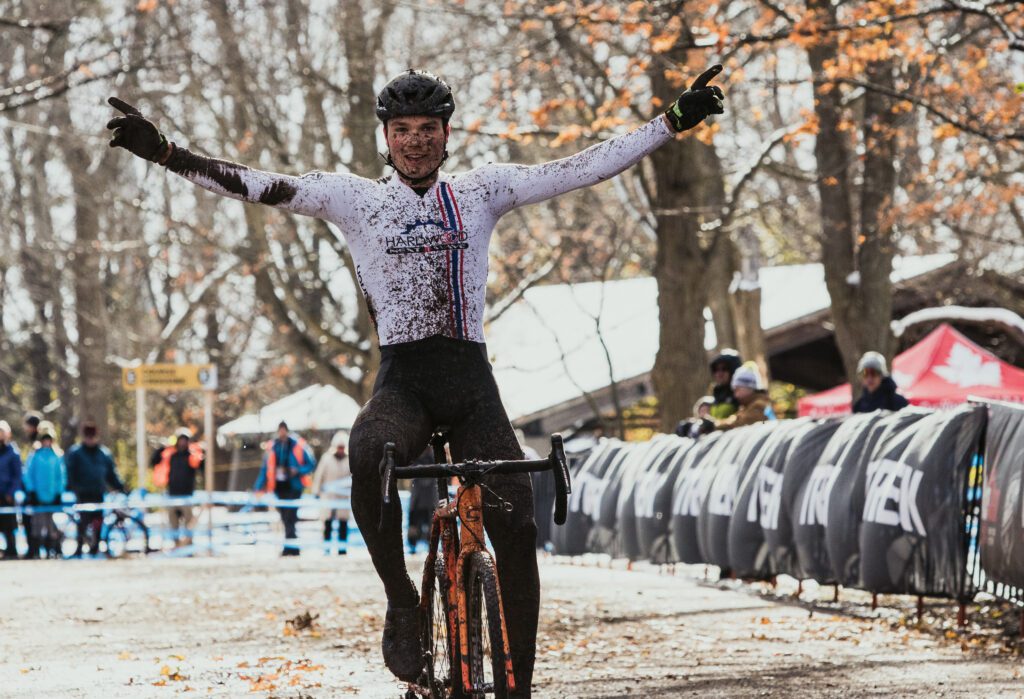
Photo: Matt Stetson
Throughout the course of the past year, adaptability has been a significant factor for athletes dealing with fallout related to COVID-19. Cancelled events and restructured goals can affect an athlete a number of ways. Gunnar’s youngest siblings, Ava and Isabella, chose to tackle a daunting cycling challenge in a year without in-person competition. Ava took on an Everesting challenge, completing 44 repeats of Scenic Caves Road in Collingwood, Ont., to climb enough elevation to match the world’s tallest peak, 8,848 m. Isabella tackled 20 of those laps. Gunnar helped at the end. “I joined the last five to six repeats, but it was a huge day for both of them. Ava started before the sunrise and finished after the sunset,” Gunnar said.
Ava and Isabella completed their first trip to Europe last year ahead of the pandemic, when the OCA sent a training camp to Girona. Lisa was impressed by the amount of riding they did throughout the course of the camp. She hopes they’ll be able to follow in Gunnar’s footsteps by going to Europe in 2021 to race cyclocross as juniors, if it is safe to do so. [Since this story was published, Isabella has won the junior women’s world cyclocross championships. In the same race, Ava came in second.—Ed.]
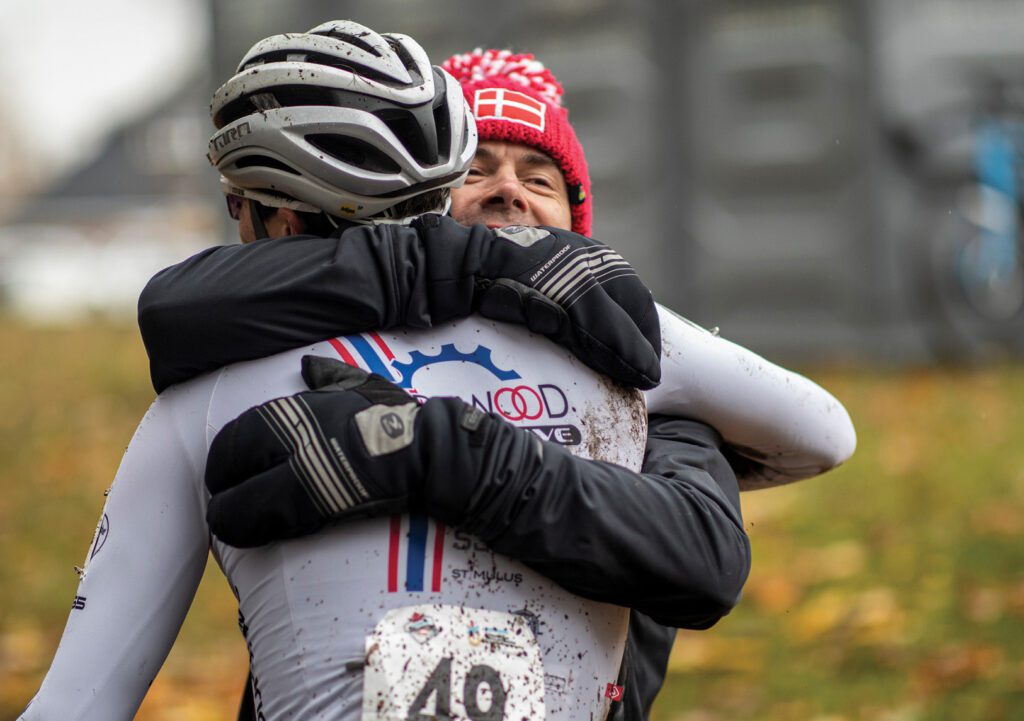
Photo: Nick Iwanyshyn
When Gunnar was racing cyclocross in Europe as a junior, he was able to spend time with national cyclocross champion, fellow Paris to Ancaster winner and national coach Mike Garrigan. “One of the reasons Gunnar is so great to travel with is that he’s come from a big family. He’s first one up, first one out of the grocery store, first one to get dinner going – he’s a natural leader,” Garrigan said.
Garrigan has seen many athletes who don’t focus on the whole picture, and get caught up in elements they can’t control. Garrigan sees Gunnar differently. “He is definitely cut from the same cloth as a Peter Disera, for example,” Garrigan said, “athletes who will order a food processor to make their own peanut butter while travelling to races because they’ve done the cost analysis and they don’t want the extra ingredients.” Garrigan said Gunnar received offers from European teams, but they didn’t make sense. “I think he preferred the culture and support that was offered at home.”
“We have five kids, so it’s a little different from the way some people run their families,” Lisa said. “From a young age, Gunnar would make a decision, and even if I didn’t agree with it, I supported it. And I think that’s how someone stays focused on their goals and passionate. They’re responsible for the follow through.”
On a high-performing team, everyone’s role is invaluable. Gunnar says his dad is his coach, but his mom is his advisor. “I know if Gunnar is tired or happy or stressed just by talking to him over the phone, more mom stuff,” Lisa said.
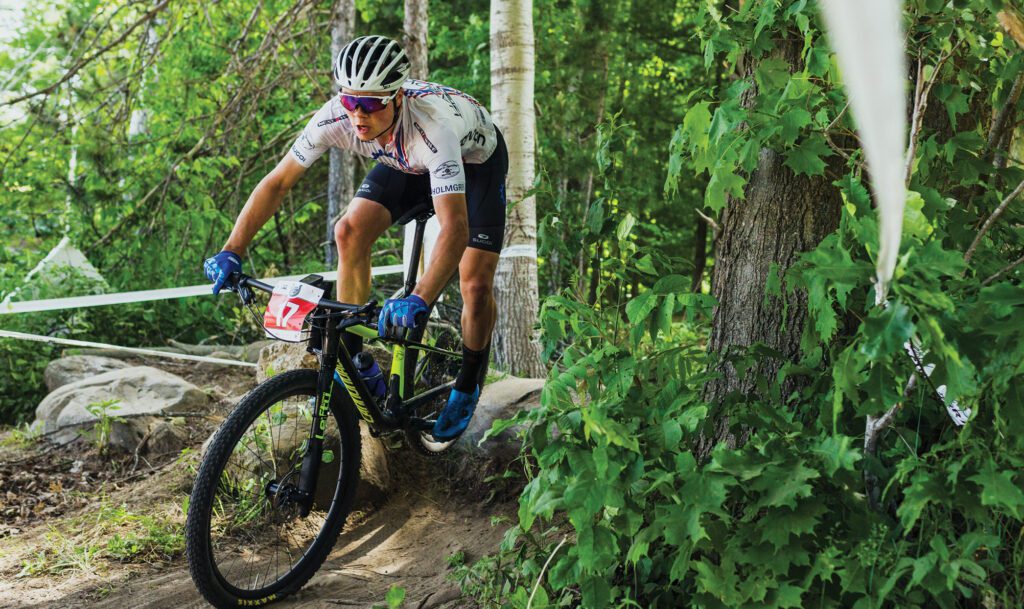
Photo: Matt Stetson
In 2020, Gunnar was unsure about travel and about participating in the pandemic-shortened season. He asked his mom for advice. “He asked me whether or not he should go. I told him the racing in Europe is not going to wait for the North Americans,” Lisa said. “If your team is there and you can get there safely, and if that’s your goal and you’re ready, you should go.” Gunnar feels his decision to follow that advice was one of his best.
When looking into the future, the Holmgrens are less interested in setting unrealistic expectations and more focused on tasks at hand. Whether it’s cleaning one of 17 family bikes, or whipping up dinner, everyone’s there to pick up the slack.
“I feel like they don’t get enough credit. They’ve put in so much work in the past decade to get where they are now,” Garrigan said. “I think they love the challenge. They really shine when things get complicated or hard. They’re cut from a different cloth as far as the high-performance endurance athlete culture, as they’re very much a team. It doesn’t work for everyone, but without ‘team,’ their family doesn’t function.”
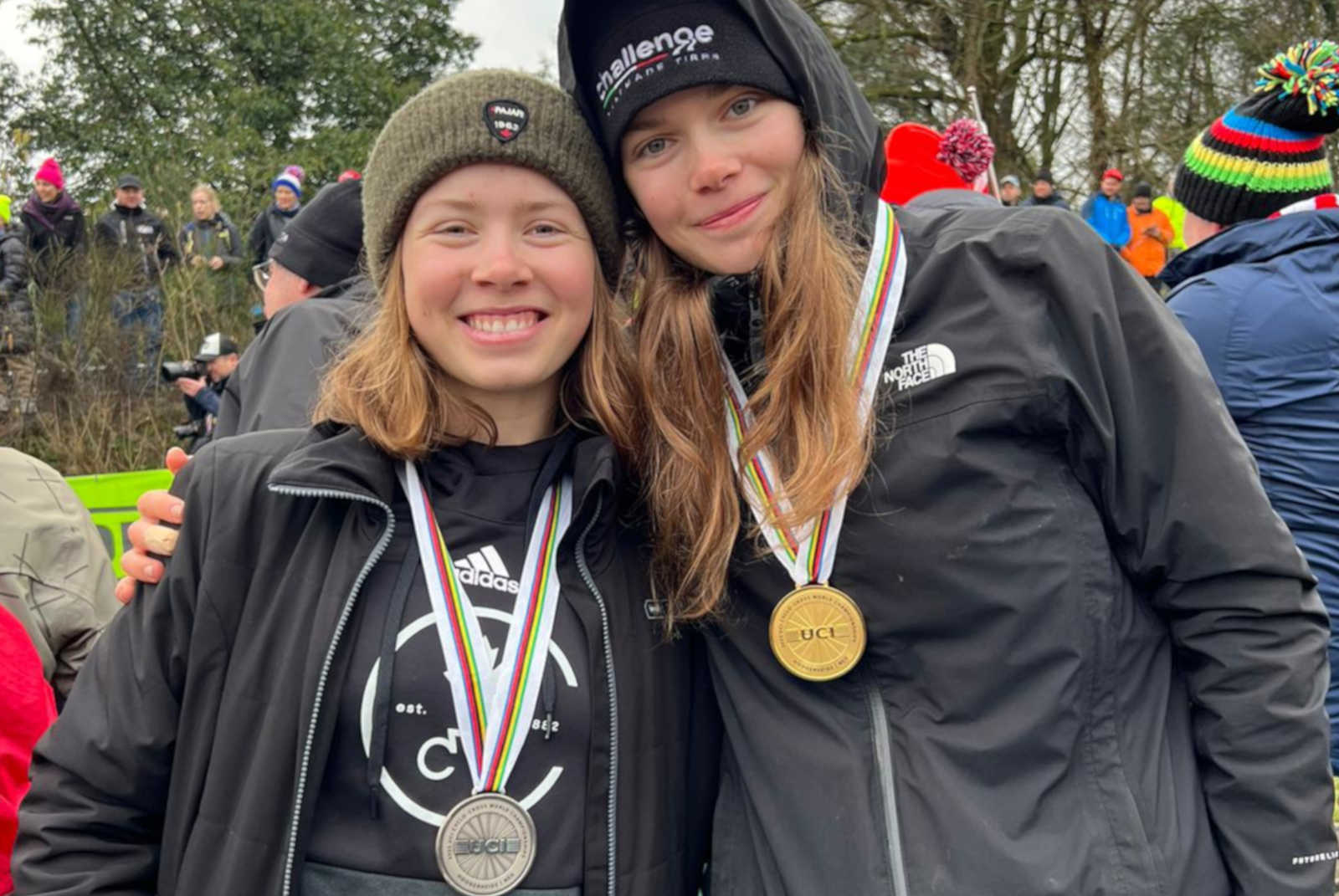
This story originally appeared in the June/July 2021 issue of Canadian Cycling Magazine. Images updated February 2023.
